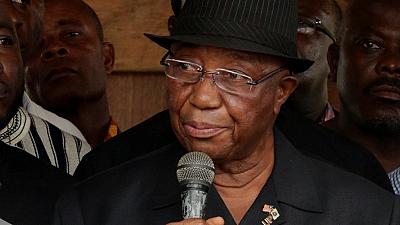According to Joseph Boakai, Liberia was better off under convicted warlord Charles Taylor. You know, Charles Taylor who was sentenced to 50 years in prison for his part in aiding and abetting –as well as planning –some of the most heinous and brutal crimes in recorded human history. Gaddafi’s protégé (yes, the dictator whose authoritarian administration systematically violated human rights), Taylor was found guilty of 11 counts of human rights violations including: acts of terrorism; murder; rape, enslavement, and conscripting children under the age of 15 into the armed forces – just to name a few.
Yet, according to presidential hopeful Boakai, the current Weah Administration is the worst in Liberian history.
In other words, the civil war triggered by Taylor’s rebellion, which caused grave devastation on Africa’s first republic, killed more than 150,000 Liberians, and made refugees of much of the country’s estimated 2.5 million population, now scattered across West Africa – is loads better than what we’ve currently got.
Those of us with all our mental faculties understand just how ludicrous Boakai’s pontifications are. The problem is, he doesn’t.
Still, we must continue to call out his irresponsible representations, because they demonstrate just how out of touch Boakai is, and the kind of person he has become, having aligned himself to Taylor sympathizer Benoni Urey.
In Boakai’s address to the 16th Graduating Class of the Effort Baptist Church School, he told the graduates that “people in leadership today who steal the nation’s resources are robbing them of their promised future,” and emphasized “good character must always go with you in order to become honest, patriotic, and productive leaders in the future.”
At face value, these comments are true, but who is saying them feels disingenuous to many of us.
Afterall, during his time as vice president, Joseph Boakai was part of a flagrantly corrupt administration which granted more than a third of Liberia’s land to private investors for logging, mining and agro-industrial enterprises; he was part of a government that ignored the civil wars and made no attempt to acknowledge that the country and its people needed healing and reconciliation; he failed to pay attention to the pillars of the Liberian economy which include small businesses (e.g. market women and men, tailors, weavers, farmers, etc.); and he did nothing to modify the Liberian taxation and revenue systems that were misguided, serving only the needs of the elites.
Not to mention Boakai accepted a petition in Lofa county to contest the presidency of Liberia when he was running for the seat, thereby challenging a legitimate election and peaceful transfer; it’s not so surprising then, that he has now hitched his wagon to embattled Charles Taylor ally, Urey.
Unfortunately, this is who Boakai has always been.
Even his record leading up to his vice presidency falls flat. From 1983 to 1985, he served as Minister of Agriculture under President Samuel Doe whose rule was marked by totalitarianism and corruption, and eventually his assasination. Boakai also spent some time working in the private sector for the Liberia Wood Management Corporation and of the Liberia Petroleum Refining Company (LPRC). During his time as chairman of the LPRC, it was reported that, “one of the six layers of management was composed entirely of political appointees,” and that “the company…provided a textbook example of how to steal.”
It’s a wonder then that Boakai knows what good character is, as it seems that for decades only bad character has followed him. And Liberians are catching on, so he’ll need to make major reconstruction efforts to his own character if he expects anyone to vote for him.
In fact, if he has hope of being taken seriously as a presidential candidate, he needs to unite the Unity Party, which has become an example of how poor leadership fractures. And he’ll need to focus less on attacking Weah, especially when his own record is abysmal. But, before all of that, he’ll need to make a show of good faith. That he’s committed to rooting out the corruption that exists within his own team and within himself.
Only time will tell if he can change, but Liberians everywhere will be watching.
It is time for leaders that are more focused on building substantial and actionable policies that are truly rooted in “good character” than those who are nothing but lip service and lies. And Liberians are ready.






